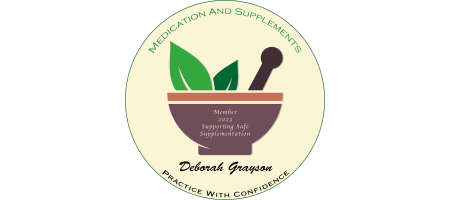The Link Between Sleep Deprivation and Immunity: Understanding the Impact on Health

posted 27th February 2024

Sleep is a vital component of human health, influencing physical, mental, and emotional well-being.
In the United Kingdom, as in many other countries, sleep deprivation is a prevalent issue with significant implications for overall health.
This article explores the intricate relationship between sleep deprivation and immunity.
By understanding how inadequate sleep affects the immune system, we can better comprehend the importance of prioritizing sleep for maintaining optimal health.
Understanding Sleep Deprivation
Sleep deprivation is a widespread problem in the UK, affecting people of all ages and backgrounds.
According to a survey conducted by the Sleep Council, 74% of UK adults report experiencing regular sleep disturbances, with factors such as stress, lifestyle habits, and environmental factors contributing to sleep difficulties.
Additionally, research from the National Sleep Foundation found that the average adult in the UK gets approximately 6.8 hours of sleep per night, falling short of the recommended 7-9 hours for optimal health.
Sleep deprivation refers to the condition where an individual consistently fails to obtain the necessary amount or quality of sleep required for optimal functioning and well-being.
It can manifest in various ways and have profound effects on physical, mental, and emotional health:
Insufficient Quantity of Sleep: One common manifestation of sleep deprivation is simply not getting enough sleep. Adults typically need between 7 to 9 hours of sleep per night for optimal health, while children and teenagers require even more. However, many people fall short of these recommendations due to factors such as busy schedules, work demands, social activities, or lifestyle choices.
Poor Sleep Quality: In addition to quantity, the quality of sleep is equally important. Even if individuals spend enough time in bed, disruptions to the sleep cycle can result in poor sleep quality. This may include difficulties falling asleep, frequent awakenings throughout the night, or waking up feeling unrested and fatigued despite spending the recommended amount of time in bed.
Irregular Sleep Patterns: Consistency is key when it comes to sleep, yet many individuals experience irregular sleep patterns due to shift work, jet lag, or erratic sleep schedules. Irregular sleep patterns can disrupt the body's internal clock, known as the circadian rhythm, leading to difficulties in falling asleep and waking up at consistent times.
Sleep Disorders: Sleep deprivation can also be caused by underlying sleep disorders such as insomnia, sleep apnoea, restless leg syndrome, or narcolepsy. These disorders can interfere with the ability to fall asleep, stay asleep, or achieve restorative sleep, resulting in chronic sleep deprivation over time.
Daytime Symptoms: The effects of sleep deprivation are not limited to the night; they often spill over into the daytime, affecting cognitive function, mood, and physical health. Common daytime symptoms of sleep deprivation include fatigue, irritability, difficulty concentrating, memory problems, impaired judgment, and increased susceptibility to stress.
Physical Manifestations: Chronic sleep deprivation can also manifest physically, with symptoms such as headaches, muscle aches, weakened immune function, and changes in appetite and metabolism. Prolonged sleep deprivation has been associated with an increased risk of obesity, diabetes, cardiovascular disease, and other chronic health conditions.
Psychological Effects: Sleep deprivation can take a toll on mental health, contributing to mood disorders such as depression and anxiety. It can exacerbate symptoms of existing mental health conditions and impair coping mechanisms, leading to heightened emotional reactivity and reduced resilience to stress.
In summary, sleep deprivation encompasses a spectrum of conditions characterized by inadequate quantity or quality of sleep, irregular sleep patterns, and associated daytime symptoms affecting physical, mental, and emotional well-being.
Recognizing the signs and consequences of sleep deprivation is crucial for taking proactive steps to prioritize sleep and promote overall health and vitality.
Effects of Sleep Deprivation on Immunity
The immune system is highly sensitive to sleep patterns, with inadequate sleep having profound effects on immune function.
Here are some ways in which sleep deprivation can impact immunity:
Reduced Immune Cell Activity:
Sleep deprivation can impair the function of various immune cells, including T cells, B cells, and natural killer (NK) cells. These cells are essential for identifying and destroying pathogens, such as viruses and bacteria. Research published in the British Journal of Pharmacology suggests that sleep deprivation suppresses the activity of immune cells, compromising the body's ability to mount an effective defence against infections.
Increased Inflammation:
Chronic sleep deprivation has been linked to increased inflammation in the body. Inflammation is a natural immune response to infection or injury, but when it becomes chronic, it can contribute to the development of various health problems, including cardiovascular disease, diabetes, and autoimmune disorders, allergies and eczema. Studies conducted at leading UK universities, such as Oxford and Cambridge, have demonstrated a correlation between poor sleep quality and elevated levels of inflammatory markers.
Increased Susceptibility to Infections:
Sleep deprivation has been linked to an increased susceptibility to infections.
Research conducted at leading UK universities, has shown that inadequate sleep compromises the body's immune response, making individuals more vulnerable to viral and bacterial infections. The disruption of immune cell function and the dysregulation of inflammatory pathways associated with sleep deprivation create an environment in which pathogens can proliferate more easily.
Consequently, individuals who consistently experience sleep disturbances may find themselves falling ill more frequently and experiencing prolonged recovery times from common infections such as colds and flu.
Strategies for Improving Sleep and Boosting Immunity
To mitigate the detrimental effects of sleep deprivation on immunity, individuals can adopt various strategies to improve sleep quality and promote immune resilience.
Here are some recommendations:
1. Establish a Consistent Sleep Schedule:
Maintain a regular sleep schedule by going to bed and waking up at the same time every day, even on weekends. This helps regulate the body's internal clock and promotes better sleep quality.
2. Create a Relaxing Bedtime Routine:
Engage in relaxing activities before bedtime, such as reading, taking a warm bath, or practicing meditation or deep breathing exercises. Avoid stimulating activities, such as watching TV or using electronic devices, which can interfere with sleep.
3. Optimize Sleep Environment:
Create a comfortable sleep environment by ensuring your bedroom is cool, dark, and quiet. Invest in a supportive mattress and pillows, and remove any distractions that may disrupt sleep, such as noise or light pollution.
4. Practice Healthy Lifestyle Habits:
Maintain a healthy lifestyle by eating a balanced diet, exercising regularly, and managing stress effectively. Avoid excessive consumption of caffeine and alcohol, especially close to bedtime, as these substances can interfere with sleep.
Conclusion:
In conclusion, sleep deprivation poses a significant threat to immune health, increasing susceptibility to infections and compromising the body's ability to defend against pathogens.
In the UK, where sleep disturbances are widespread, prioritizing sleep is essential for maintaining optimal immune function and overall well-being.
By implementing healthy sleep habits and lifestyle changes, individuals can support their immune systems and reduce the risk of illness and disease.
Transform your health and discover the vitality you deserve! Click the link to get started
References:
The Sleep Council. (2023). The Great British Bedtime Report. Retrieved from https://sleepcouncil.org.uk/the-great-british-bedtime-report/.
British Journal of Pharmacology. (2020). Sleep Deprivation and Immune Function. Retrieved from https://bpspubs.onlinelibrary.wiley.com/doi/full/10.1111/j.1476-5381.2010.00873.x.
University of Oxford. (2019). How Poor Sleep Increases Inflammation. Retrieved from https://www.ox.ac.uk/news/2019-10-29-how-poor-sleep-increases-inflammation.
Irwin, M. (2019). Sleep and inflammation: partners in sickness and in health. Nature Reviews Immunology, 19(11), 702-715.
Besedovsky, L., Lange, T., & Haack, M. (2019). The Sleep-Immune Crosstalk in Health and Disease. Physiological Reviews, 99(3), 1325-1380.
Prather, A. A., Janicki-Deverts, D., Hall, M. H., & Cohen, S. (2015). Behaviorally Assessed Sleep and Susceptibility to the Common Cold. Sleep, 38(9), 1353–1359.
Center for Disease Control and Prevention (CDC). (2020). Sleep and Sleep Disorders. Retrieved from https://www.cdc.gov/sleep/index.html.













